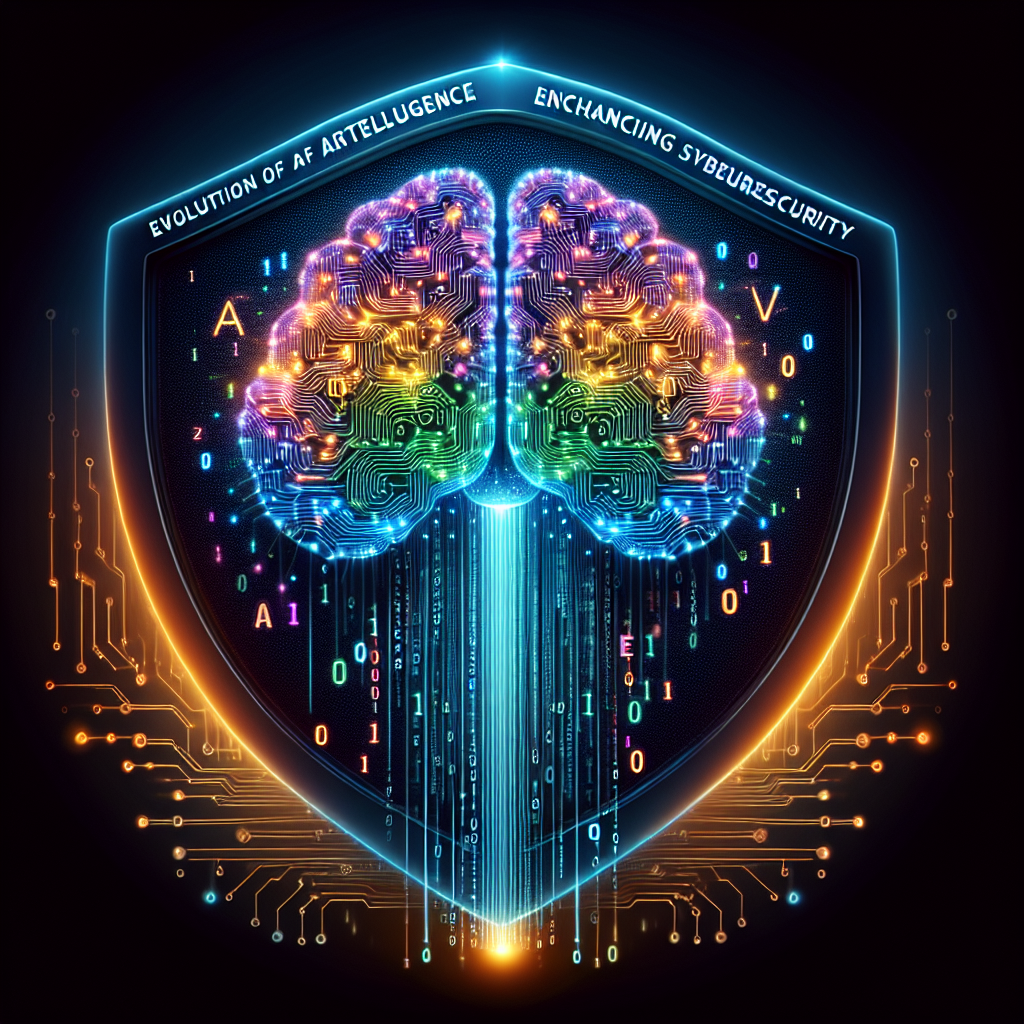In today’s digital age, cybersecurity is more important than ever. With the increasing number of cyber threats and attacks, organizations are constantly looking for new and innovative ways to protect their data and systems. One of the most promising technologies in this field is artificial intelligence (AI). AI has the potential to revolutionize cybersecurity strategies by providing advanced and proactive defense mechanisms against cyber threats. In this article, we will explore the evolution of AI in revolutionizing cybersecurity strategies and its impact on the future of cybersecurity.
Evolution of AI in Cybersecurity:
AI has been used in cybersecurity for several years now, but its capabilities have evolved significantly over time. In the early days, AI was primarily used for simple tasks such as pattern recognition and anomaly detection. However, as technology has advanced, AI has become more sophisticated and powerful, enabling it to handle more complex tasks and threats.
One of the key areas where AI has made a significant impact in cybersecurity is threat detection and response. Traditional cybersecurity tools rely on rules-based systems to detect and respond to threats, which can be slow and inefficient. AI, on the other hand, uses machine learning algorithms to analyze vast amounts of data and identify patterns and anomalies that may indicate a potential threat. This enables AI-powered cybersecurity systems to detect threats in real-time and respond to them quickly and effectively.
Another area where AI is revolutionizing cybersecurity is in threat prediction and prevention. AI can analyze historical data and trends to predict potential cyber threats before they occur. By identifying vulnerabilities and weaknesses in a system, AI-powered cybersecurity tools can proactively address these issues before they are exploited by malicious actors. This proactive approach to cybersecurity can help organizations stay one step ahead of cyber threats and prevent potential breaches before they happen.
AI is also being used to enhance security operations and incident response. By automating routine tasks and processes, AI-powered cybersecurity tools can free up security professionals to focus on more strategic and high-level tasks. This can help organizations respond to cyber threats more quickly and effectively, reducing the time and resources required to mitigate the impact of a breach.
The Future of AI in Cybersecurity:
The future of AI in cybersecurity looks promising, with continued advancements in technology and a growing demand for more sophisticated cybersecurity solutions. As cyber threats become more complex and sophisticated, organizations will need to rely on AI-powered tools to protect their data and systems effectively.
One of the key trends in the future of AI in cybersecurity is the integration of AI with other emerging technologies such as the Internet of Things (IoT) and cloud computing. As more devices and systems become interconnected, the attack surface for cyber threats will continue to expand. AI-powered cybersecurity tools can help organizations monitor and secure these interconnected systems more effectively, reducing the risk of potential breaches and attacks.
Another trend in the future of AI in cybersecurity is the use of AI-driven threat intelligence. By analyzing vast amounts of data from various sources, AI-powered cybersecurity tools can provide organizations with valuable insights into potential threats and vulnerabilities. This can help organizations make more informed decisions about their cybersecurity strategy and prioritize their resources more effectively.
FAQs:
Q: How does AI improve cybersecurity?
A: AI improves cybersecurity by providing advanced threat detection and response capabilities, predicting and preventing potential cyber threats, enhancing security operations and incident response, and automating routine tasks and processes.
Q: What are some examples of AI-powered cybersecurity tools?
A: Some examples of AI-powered cybersecurity tools include endpoint detection and response (EDR) systems, network traffic analysis (NTA) tools, security information and event management (SIEM) platforms, and threat intelligence platforms.
Q: What are the challenges of implementing AI in cybersecurity?
A: Some of the challenges of implementing AI in cybersecurity include the need for specialized skills and expertise, the potential for bias in AI algorithms, privacy and ethical concerns, and the risk of cyber attacks targeting AI systems.
Q: How can organizations benefit from using AI in cybersecurity?
A: Organizations can benefit from using AI in cybersecurity by improving their threat detection and response capabilities, predicting and preventing potential cyber threats, enhancing security operations and incident response, and automating routine tasks and processes.
In conclusion, the evolution of AI in revolutionizing cybersecurity strategies is a promising development that has the potential to significantly enhance organizations’ ability to protect their data and systems from cyber threats. By leveraging the power of AI, organizations can stay one step ahead of cyber threats, proactively address vulnerabilities, and respond to incidents more quickly and effectively. As technology continues to evolve, AI will play an increasingly important role in shaping the future of cybersecurity and helping organizations stay secure in an increasingly digital world.

